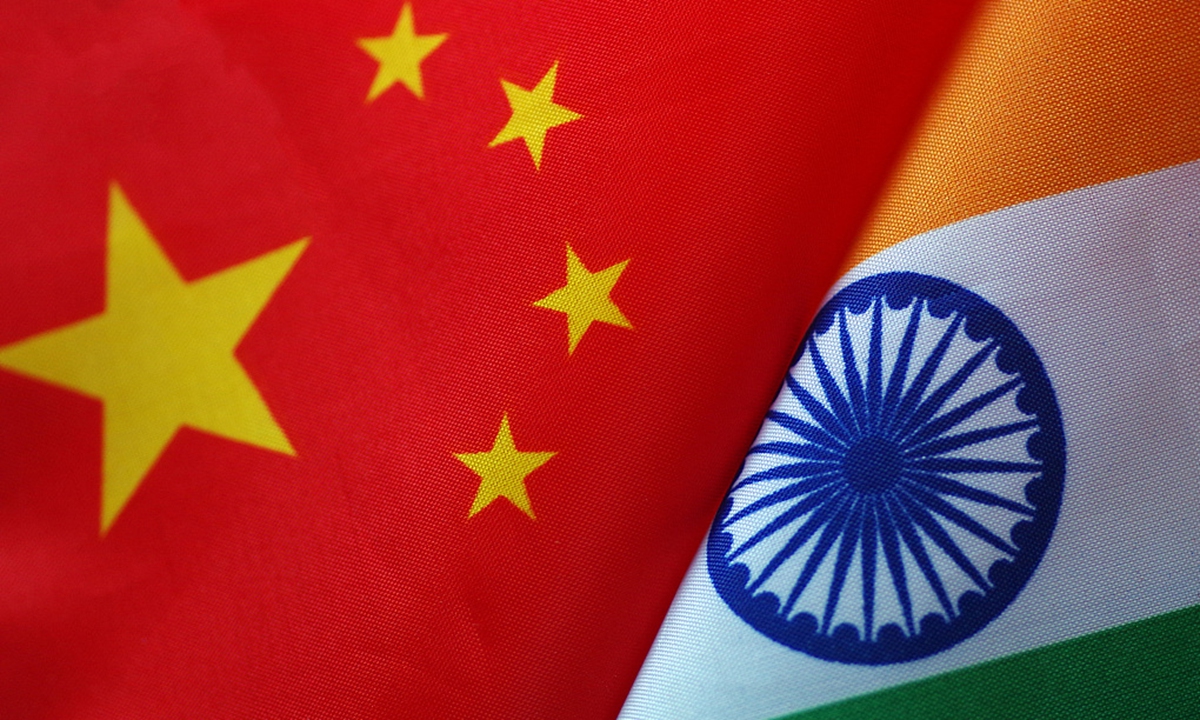-

- Liu Zongyi
- Associate Research Fellow
- Center for Asia-Pacific Studies
- Institute for International Strategic Studies
- India rebalances between US, Russia, but China strategy remains unchanged
- ISRO-OPPO deal benefits India; less hostility is needed
- US efforts to isolate China from solar industry to end in futility
- Time for New Delhi to reconsider its anti-China economic policy
- Attempts by the US and India to sabotage CPEC doomed to fail

China India. Photo: VCG
The Indian government on Monday appointed Pradeep Kumar Rawat as the next ambassador of India to China. A Chinese-speaking Indian "China hand," Rawat started his diplomatic career in China-related affairs and spent many years in Beijing and Hong Kong hereafter. We met in January 2015 when I was on a visit to India. When I arrived at the Indian Ministry of External Affairs (MEA), it was Rawat, who was then the joint secretary in the East Asia division of the MEA, that was in charge of reception.
Rawat has done a lot to help promote India-China relations as the joint secretary, especially during President Xi Jinping's visit to India in September 2014, which was a huge success. Rawat understands China much better than some dilettantish, so-called China hands. .
Having been engaged in Indian diplomacy since the 1990s, Rawat has witnessed and experienced ups and downs in the bilateral relationship, including Indian Prime Minister Narendra Modi's visit to China in 2015 and the 2017 China-India border standoff. What's particularly worth mentioning is Rawat's role in an agreement on travel for the Kailash Manasarovar Yatra (KMY) to the Tibet Autonomous Region of China through Nathu La Pass, allowing Indian nationals to travel through the pass to make pilgrimages from 2015.
An important reason for Rawat's appointment is his understanding of China and the potential of promoting effective communication in the face of the current stalemate. However, Indian officials and scholars have different historical views from their Chinese counterparts. When I met Rawat in 2015, he criticized my articles, which constructively raised the problems of India for a better relationship on newspapers like Global Times.
China believes that the China-Indian border dispute results from the imperialist and colonialist history, Therefore, China and India, as two new emerging countries, should renegotiate the border issues. India, however, has always disagreed and thinks its so-called territorial rights and claims inherited from the UK in the colonial period are legitimate. The difference leads to the unresolved border issue between China and India. This knot will never be untied if India clings to the old rigid thinking of the past, especially the zero-sum competitive thinking of the Cold War.
Moreover, there are many other problems between China and India. Facing major changes unseen in a century, the relationship between major powers is very delicate. On the one hand, Rawat needs to implement the Modi administration's instructions. On the other hand, he needs to be pioneering, and should not set preconditions when dealing with China-India relations. The Modi administration has been demanding to "restore the status quo of April 2020 in eastern Ladakh." It's unacceptable if India takes this as a precondition for developing bilateral relations. The fundamental reason why China has resolutely opposed India's provocations in the border area is that India has been implementing its "forward policy." India made provocations first, so China must take precautions.
There are still many things that need to be dealt with between China and India. There are many fields requiring both sides' cooperation, and only in this way can the two ancient civilizations rise together and rejuvenate Asia. Indeed, an ambassador is first and foremost a representative of his own government. As Rawat has to implement the Indian government's policies, he will have limited room for flexibility. But as a person who knows China well, he still has some room for innovation.
Former Indian ambassador to China Vikram Misri has a closer relationship with Modi, and his acts are more in line with the Modi administration's goals and intentions. Rawat may not have such close ties with Modi, but he belongs to the so-called circle of "China hands" in India. Besides, the Modi administration has made the decision to appoint a "China hand" as its ambassador to China, which is itself a signal. India may want to seek a breakthrough. In particular, India, as a provocateur, should first make breakthroughs and compromises.
As an ambassador who is familiar with Chinese culture, language and customs, Rawat should be more open-minded and listen more to the voices of China, especially in terms of developing China-India relations, rather than clinging to a rigid view of history.
Source of documents:Global Times, Dec. 21
